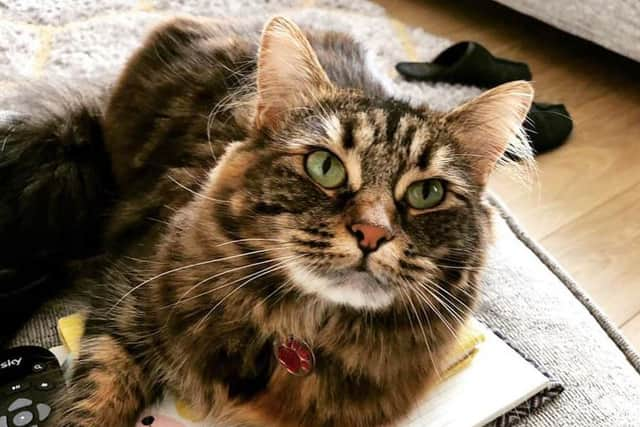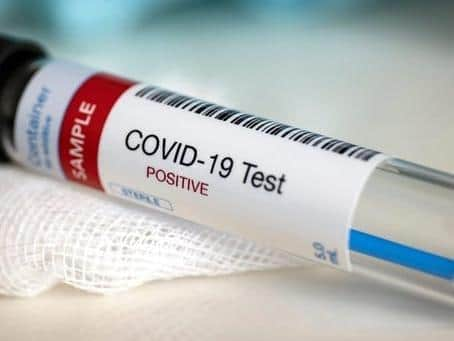Cat becomes first British pet to be infected with coronavirus
and live on Freeview channel 276
It becomes the first animal to test positive for coronavirus in the UK following initial uncertainty about whether pets could catch the disease.
Following the announcement, Public Health England has said there is no evidence that pets can transmit the disease to humans.
Advertisement
Hide AdAdvertisement
Hide AdYvonne Doyle, medical director at Public Health England (PHE), said: "This is the first case of a domestic cat testing positive for Covid-19 in the UK but should not be a cause for alarm.


"The investigation into this case suggests that the infection was spread from humans to animal, and not the other way round.
"At this time, there is no evidence that pets can transmit the disease to humans.
"In line with the general advice on fighting coronavirus, you should wash your hands regularly, including before and after contact with animals."
Advertisement
Hide AdAdvertisement
Hide AdA private vet initially diagnosed the pet with feline herpes virus, a common cat respiratory infection, but the sample was also tested for Covid-19 as part of a research programme.


The case has been reported to the World Organisation for Animal Health in line with international agreements.
Prior to the findings, there has been a small number of confirmed cases in pets in other countries in Europe, North America and Asia.
The UK’s chief veterinary officer, Christine Middlemiss, said: "Tests conducted by the Animal and Plant Health Agency have confirmed that the virus responsible for Covid-19 has been detected in a pet cat in England.
Advertisement
Hide AdAdvertisement
Hide Ad"This is a very rare event, with infected animals detected to date only showing mild clinical signs and recovering within a few days.
"There is no evidence to suggest that pets directly transmit the virus to humans.
"We will continue to monitor this situation closely and will update our guidance to pet owners should the situation change."
A team of scientists at the University of Glasgow Centre for Virus Research are behind the programme to screen hundreds of samples for Covid-19 infections in the UK cat population.
Advertisement
Hide AdAdvertisement
Hide AdResearchers at the CVR have now completed a full genome sequencing of the virus found in the infected cat.
Professor Margaret Hosie, who works on the project, said: "There have been sporadic reports of cats from Covid-19 households in Hong Kong, Belgium, France, Germany, Switzerland, Spain and the US that tested positive for (coronavirus) and were presumed to be infected from their owners, but this is the first report of an infected cat in the UK.
"All available evidence suggests that the cat was infected from its owners, who had previously tested positive.
"The cat and its owners have since made a full recovery and there was no transmission of the virus to other animals or people in the household."
Advertisement
Hide AdAdvertisement
Hide AdA team of scientists at the University of Glasgow Centre for Virus Research are behind the programme to screen hundreds of samples for Covid-19 infections in the UK cat population.
Researchers at the CVR have now completed a full genome sequencing of the virus found in the infected cat.
Professor Margaret Hosie, who works on the project, added: "There have been sporadic reports of cats from Covid-19 households in Hong Kong, Belgium, France, Germany, Switzerland, Spain and the US that tested positive for (coronavirus) and were presumed to be infected from their owners, but this is the first report of an infected cat in the UK.
"All available evidence suggests that the cat was infected from its owners, who had previously tested positive.
"The cat and its owners have since made a full recovery and there was no transmission of the virus to other animals or people in the household.”
Comment Guidelines
National World encourages reader discussion on our stories. User feedback, insights and back-and-forth exchanges add a rich layer of context to reporting. Please review our Community Guidelines before commenting.